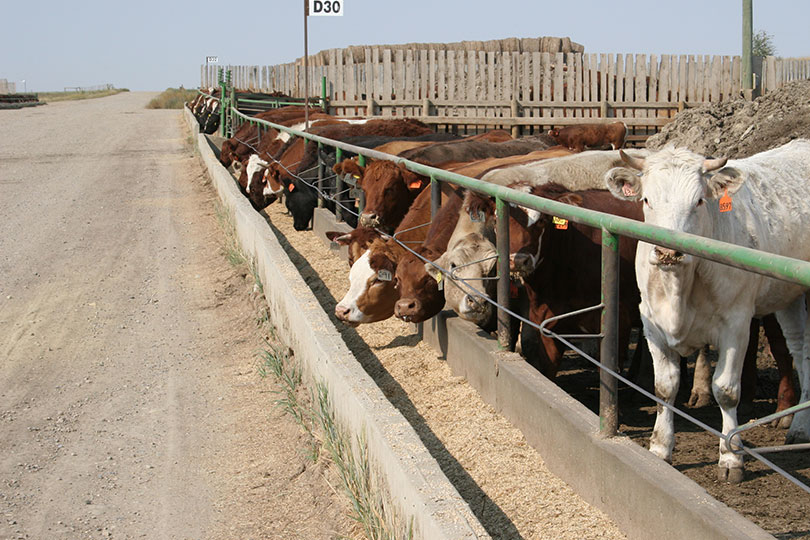By Jennifer Dorsett
Field Editor
A comprehensive nationwide feedlot study was originally slated for 2020 by the U.S. Department of Agriculture’s (USDA) Animal and Plant Health Inspection Service (APHIS), but cattle market disruptions brought about by COVID-19 derailed those plans.
Now, the National Animal Health Monitoring System (NAHMS) feedlot study set to take place from March through August 2021.
In collaboration with the USDA’s National Agricultural Statistics Service (NASS), APHIS will conduct a national study focusing on cattle health and management of U.S. feedlots with at least 50 head of cattle, according to Dr. Chelsey Shivley, USDA APHIS veterinary medical officer-epidemiologist from Fort Collins, Colo.
“The study is designed to provide a snapshot of current feedlot cattle health management practices,” Shivley said in an interview with Drovers. “The information we collect will allow for the analysis of trends in specific topics related to cattle health. We want to better understand what diseases and issues are providing the greatest challenges to producers.”
The 2021 study aims to provide an overview of current feedlot cattle health management practices, identify trends in feedlot cattle health management and antibiotic use, and estimate the prevalence of feedlot cattle diseases.
Data collected will be used to help policymakers and stakeholders assess overall feedlot disease preparedness and make informed decisions when it comes to feedlot cattle health and management practices. Research and development needs across the industry will be also be more easily identifiable through this study, she noted.
Other information gathered by Shivley and her team will be used for economic analyses of the U.S. feedlot industry, to help identify educational needs related to feedlot cattle health and will provide credible, independent documentation of U.S. feedlot industry practices not collected by the industry itself.
Benchmark data on feedlot cattle health management practices also will be gathered to inform quality assurance programs.
Invitations to participate in the study will be mailed in February to randomly selected feedlots across the nation. All information gathered is confidential, and study participation is voluntary, Shivley added.
Participation in the study creates positive results for ranchers and feedlots, said Dr. Dee Griffin, director of the Texas A&M University College of Veterinary Medicine Veterinary Education, Research & Outreach (VERO) Program.
“The NAHMS reports for cow-calf [operations] and feedlots have, for decades, provided solid, non-biased information to rancher and feedlot managers to help them understand how their colleagues in the beef industry manage cattle,” Griffin said in a statement published on behalf of APHIS. “From my long history as a veterinarian serving beef producers, I ask you to sincerely consider supporting the NAHMS survey efforts.”
Representatives from NASS will visit participating operations next March through April to complete a questionnaire. If participants choose to continue in the study, USDA or state veterinary health professionals will visit feedlots from June through August to complete a second questionnaire.
More information on NAHMS feedlot studies including an information sheet on the upcoming 2021 project, as well as summaries from the two latest studies, are available here.

